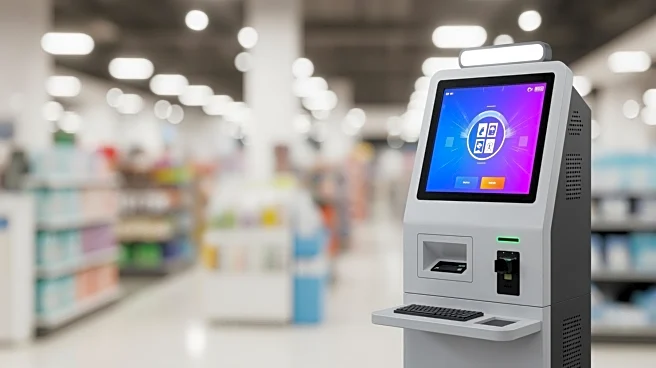What's Happening?
The retail self-service kiosk market is experiencing significant growth, particularly in the hospitality sector where kiosks are used for digital check-ins and handling routine requests. This allows hotel staff to focus more on customer service. In retail superstores,
interactive maps are being implemented to guide customers without the need for constant human presence. Kiosks equipped with digital displays provide essential information to consumers, enhancing functionality and efficiency. These advancements are not replacing human interaction but are amplifying it, leading to greater reach and consistency. The integration of AI, CRM, and inventory systems into kiosks is further enhancing their functionality, particularly in digital queue management for events.
Why It's Important?
The expansion of self-service kiosks is transforming the retail and hospitality industries by improving operational efficiency and customer service. This technology allows businesses to optimize their workforce, reducing the need for additional staffing while maintaining personalized service. The integration of advanced technologies like AI and CRM into kiosks is crucial for real-time personalization and efficient queue management, which can significantly enhance customer satisfaction. As kiosks become more advanced, they are expected to play a pivotal role in retail environments, potentially impacting retail real estate and consumer shopping experiences.
What's Next?
As kiosks continue to evolve, they are likely to incorporate more advanced features such as dispensing mechanisms similar to vending machines, allowing for quick service and payment. This development could lead to further integration of kiosks in various retail settings, enhancing customer convenience and operational efficiency. Businesses may need to invest in reliable back-office systems to prevent technology failures that could damage customer trust and brand reputation.
Beyond the Headlines
The rise of self-service kiosks highlights a shift towards technology-driven customer service, raising questions about the balance between human interaction and digital efficiency. While kiosks enhance service delivery, they also underscore the importance of maintaining reliable technological systems to avoid service disruptions that could negatively impact customer perceptions.
















